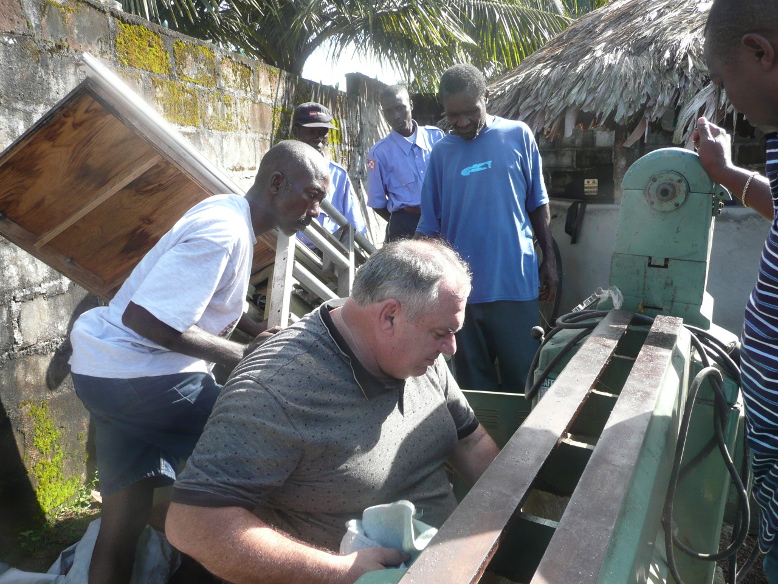NOTE: Applications for 2024 funding will open September 5, 2023

Seed fund application and budget form for 2024 Seed Funds should be submitted no later than October 20, 2023.
- Download 2024 Mission Seed Funds Guidelines
- Download Budget-Form-2024
- Complete and submit 2024 Mission Seed Funds Application
Please note, your application, budget, and cover letter documents are all required and will be submitted at one time as the application form is filled out.
Pay close attention to the form where your application information is submitted. The cover letter and budget will be attached at the bottom of the actual application.
Purpose of Mission Seed Funds
We are called to make disciples of Jesus Christ for the transformation of the world, a world that because it is transformed, begins to reflect the prayer that we so often pray … “on earth as it is in heaven.”
In such context, Mission Seed Funds are designed to facilitate and encourage United Methodist Congregations of the NC Conference in risk-taking ministry and radical hospitality. These Mission Seed Funds are provided to resource NCC local churches, to help the church engage in ministry that is transformative for the world and the church, to provide support in growing committed disciples, and reaching into the world in community with the poor, with children, and all who are the least, the last, and the lost. Seed Funds are not intended to be ancillary funding for local church budget. Seed Funds are specific to new ministry development, encouraging ministry with a specific focus of outreach to people who are not yet part of the existing congregation through ministries of service, evangelism, and presence. As such, Mission Seed Funds are for more than the normal in-house activities.
Guiding Scriptures:
Matthew 28:18 – 20
And Jesus came and said to them, “All authority in heaven and on earth has been given to me. Go therefore and make disciples of all nations, baptizing them in the name of the Father and of the Son and of the Holy Spirit, and teaching them to obey everything that I have commanded you. And remember, I am with you always, to the end of the age.”
Luke 4:18
“The Spirit of the Lord is upon me, because he has anointed me to bring good news to the poor. He has sent me to proclaim release to the captives and recovery of sight to the blind, to let the oppressed go free, and to proclaim the year of the Lord’s favor.”
APPLICANTS FOR MISSION SEED FUNDS SHALL INCLUDE ONE OR MORE OF THE FOLLOWING OUTCOMES:
- Local North Carolina Conference United Methodist Churches and individual congregants will participate in ministries that seek to specifically and intentionally transform the world through discipling and committed discipleship as they engage the following Four Mission Foci:
- Make disciples of Jesus Christ
- Strengthen, develop, and renew Christian congregations and communities
- Alleviate human suffering, engaged in ministry with the poor
- Seek justice, freedom, and peace
- People in the local church will effectively engage in ministry “hands on” in ways that directly move them into the world and bring about change that is outcome based and measurable.
- Congregations and individual members will understand the need to live out their faith in an active commitment of ministry within the framework of the social principles of the United Methodist Church.
The missional needs of the Church are diverse and varied, thus, Mission Seed Funds will work to support ministry throughout the North Carolina Conference or through the outreach of local NCC churches working beyond the geographical boundaries of the Conference.
WHAT ARE MISSION SEED FUNDS?
Mission Seed Funds are meant to be supplemental funding that assists congregations and partner ministries in beginning new ministry that is directed along the Four Mission Foci with specific emphasis on equipping and empowering the congregation for hands-on ministry and witness beyond the walls of the church (Acts 1:8) Mission Seed Funds may be provided for up to two years. Funds for a single ministry will not be in excess of $10,000 per year with the typical award being $5000 or less.
Congregations and partner ministries may apply for multiple ministry funding. For example, if a congregation is active in multiple areas in a local community and was seeking to start new ministries or significantly revision existing ministries, funds could be requested for two or more ministry efforts, i.e., a jobs development ministry and an outreach effort to empower high-risk children. Partner ministries that are hosting United Methodist congregations in ministries that engage the Four Mission Foci, requests can be made for ministry supporting individual congregations. For example, if a para-church ministry was engaged in a home building ministry and was hosting multiple United Methodist Churches, a request could be made for each specific project.
WHO MAY APPLY
- Local NCC United Methodist Churches
- United Methodist Cooperative Parishes
- Ecumenical Shared Ministries
- United Methodist agencies and organizations working with NCC churches
- Agencies or organizations working in partnership with United Methodist Churches – such partnership should clearly demonstrate direct and significant connection with local church lay-member participation.
KEY FUNDING CRITERIA
The following criteria will be considered when applications for funding are reviewed.
- Ministries must be in congruence with the United Methodist social principles
- Outcomes should be measurable and achievable
- Provide opportunities for United Methodist congregations and people to be directly involved in mission and ministry that is intentionally discipling and seeks to transform the world into a place congruent with the commandments of Jesus
- Culturally sensitive and inclusive
Other criteria of interest in the reviewing process:
- Funds should be supplemental in nature
- Ministry should demonstrate a plan for future sustainability
Funds will generally not be extended for normal congregational activities. For example: Funds would not likely be extended to purchase Sunday school literature for a children’s Sunday school class meant to minister to the congregation’s children. However, if the Sunday school class was being established in a neighborhood community center as an outreach effort of the church to un-churched children, such ministry would very much be in line with Mission Seed Fund funding criteria. Also, generally, Mission Seed Funds will not be used to fund congregational Mission Teams. Supplemental funding support may be available through NC UMVIM. Information can be found at http://www.nccumvim.org/.
STAFF SUPPORT AND FOLLOW-UP
All ministries that receive Mission Seed Funds have the opportunity to meet with a representative from the Mission Team during the funded year. The Mission Seed Fund Application will be thoroughly considered with specific focus on ministry outcomes, intentional action of disciple making, budgeting criteria, engagement of United Methodist laypersons, and sustainability. Staff support will be available for funded ministries by request. Possible support criteria could include but are not limited to:
Biblical and scriptural animation around the particularities of the ministry
Spiritual Formation as an outcome of the ministry
Board and Ministry Team training
Discerning the deeper needs of the targeted community and the gifts of the congregation
Budgeting and fundraising
Grant writing workshops
Congregational Coaching
MISSION SEED FUNDS – FUNDING/NOTIFICATION CYCLE
There is one funding cycle each year. Mission Seed Fund applications must be received by the Outreach Office no later than September 30, 2022 to be considered for 2023. Please submit budget, application, and cover-letter. Unfortunately, incomplete applications or applications submitted without budgets cannot be considered.
Notifications to applicants will be made in February/March. If requests are approved, funds will normally be distributed by the end of March. Those who are not approved during a particular year are welcome to reapply for the following year. No funding will be extended beyond two years for the same ministry.
Once approved, in order to receive funding, the recipient church/organization must sign and return an agreement to provide audit information, with regard to the funds received, to the NC Conference, if an audit is requested.
REPORTING CRITERIA
All Mission Seed Fund recipients are required to submit an evaluation report by January 31 following the year they receive the funding, i.e., if a congregation or ministry receives funding in March of 2023, a report would be due January 31, 2024. If a report is not received, the congregation or organization will not be considered for future Mission Seed funding until a report is received.
Download 2023 Mission Seed Fund Final Report
Download 2023 Mission Seed Fund Final Budget Report
If recipients are receiving funds for two years, a narrative report should be submitted after the first year, noting the number of individuals served, the number participating in ministry delivery, major points of the ministry success or struggle, and whether the ministry is meeting its budgetary projections. A budget must accompany the narrative report. After the second year, a final report and budget are due.
Also, if recipients are receiving funds for more than one ministry, a separate report is required for each. If your funding cycle does not run congruently with the December 31 fiscal year, we will need a narrative report in January following the year that the funding was provided and then a final report at the end of the ministry program.
All recipients of Mission Seed funds must agree to undergo a financial audit if requested by the NC Conference Office of Outreach Ministries or Treasurer’s Office.




